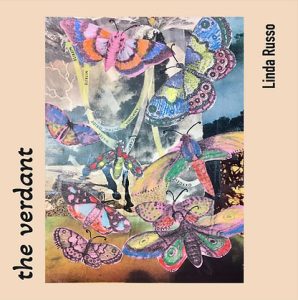Emrys Journal – 2010
Volume 27
2010
Annual
Sima Rabinowitz
By design, coincidence, or some intersection of the two, this issue focuses on writing about families. There are fathers: Judith Skillman’s prize-winning poem “June Bug” (“Heat dozes in the road. / You think of your father, / his love for the stars, / those summer evenings”); Kip Knott’s memoir-style prose “Gabriel’s Horns” (“My father, Gabriel Andrew Henry, had horns and a forked tongue”); and Dorothy Deaver Clark’s story “Still: Life” (“LeeEarle motioned the doctor to follow her to the bedroom where her father lay in his bed with hands clasped over the neatly drawn bedspread and his head propped up by two pillows sheathed with masterfully ironed pillows slips.”).
By design, coincidence, or some intersection of the two, this issue focuses on writing about families. There are fathers: Judith Skillman’s prize-winning poem “June Bug” (“Heat dozes in the road. / You think of your father, / his love for the stars, / those summer evenings”); Kip Knott’s memoir-style prose “Gabriel’s Horns” (“My father, Gabriel Andrew Henry, had horns and a forked tongue”); and Dorothy Deaver Clark’s story “Still: Life” (“LeeEarle motioned the doctor to follow her to the bedroom where her father lay in his bed with hands clasped over the neatly drawn bedspread and his head propped up by two pillows sheathed with masterfully ironed pillows slips.”).
There are mothers: the grief stricken Liz whose husband has accidentally run over and killed their toddler in Dana Knott’s story “Water Clock”; and the narrator/letter writer in Carole Chipps Carlson’s epistolary story “Letters to a Son.”
There is a grandmother: in “Wort,” a poem by Kimberly Carter Dulgeroglu (“Of the poisonous, worrisome variety, / my grandmother’s shelves were filled with sticky, / bottles of labeled herbs, garnishes, / seasonings she never used.”); and the small and large dramas of life as a sibling: an adult relationship with a brother and his children in “Dive,” a poem by Tamara Titus (“My niece and nephew are learning to dive, / but Jacob’s feet keep going in first, and as the sweat / pools against the underwire of my bra, I regret / not bringing a suit”); and Bradley Buchanan’s odd and oddly moving little story “The Chubby Family” (“I was the only one you could call even remotely fat, but we went in order of age, not in order of actual flabbiness. So my beanpole kid brother Scotty was Chubby Wubby; I was Chubbier Wubbier; Mom was Even Chubbier; Dad was Chubbiest Wubbiest.”).
Jessica Goodfellow’s prize-winning story “The Problem with Pilgrims” is the most unusual piece in the issue, composed of short segments that deliberately thwart the fluidity and context of a conventional narrative, while creating a narrative logic of their own, and edgier in tone than most of the work in Emrys: “The problem with pilgrims is they think words are souvenirs. // The problem with pilgrims is that, though they haven’t been here before, they insist everything has been picked up and placed down a quarter inch to the left of where it used to be.” Family in Goodfellow’s work is actually the first family, so to speak, appearing in a poem that erupts mid-way through this very short story:
God let Adam name the beast of the Earth.
In turn Adam let Eve name the long-legged birds
he’d seen her watching, with their built-in
backup plans. He let her.
How did he think he could stop her? Still,
somehow the fact of his listening
perplexed her so that she gave them
names sounding only close to what
she had wanted to say: egret, bittern, crane.
Then the narrative resumes: “The pilgrims must have let your sisters name something.”
We are destined, it seems, to live and relive the complex and often problematic family relationships established by this very first family, as the work in Emrys reminds us.
[www.emrys.org]




